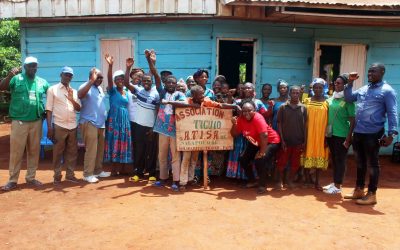Access and Benefit Sharing (ABS) is the fair and equitable distribution of benefits arising from the use of genetic resources and their related traditional knowledge. The Access and Benefit Sharing (ABS) concept originated from the Convention on Biological Diversity (CBD) established in 1992 and ratified by Cameroon in 1994. ABS falls under the third objective of this international treaty coming to support the 1st and 2nd objectives, which focus on the conservation of genetic resources and sustainable use of their components. In Cameroon, the pilot ABS Initiative, is focused on a plant, Echinops giganteuas. Echinops giganteus was located in Cameroon by ERuDeF through their previous botanical inventory. In 2012, through the intervention of Man & Nature and ERuDeF, V Mane Fils S.A became interested in the exploitation of this plant. This was to serve as a conservative incentive for the local community in the management of the neighboring Tofala Hill Wildlife Sanctuary and the Mount Bamboutos ecosystems. Within this context, the Echinops project was then launched in November 2012 in Magha-Bamumbu with financial and technical support from Mane Foundation and Man and Nature. This documentary therefore gives a panoramic view of Cameroon’s ABS Initiative.


